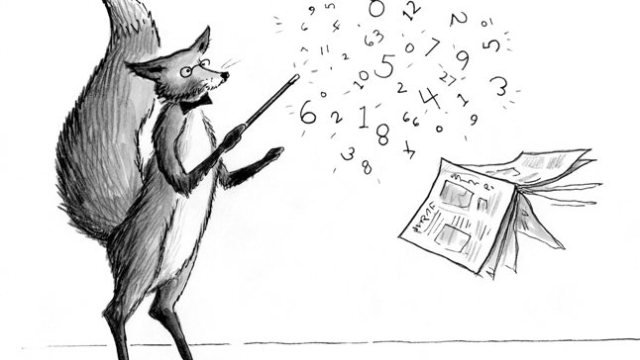Four Errors in the Campaign Finance Ruling

On Wednesday, the Supreme Court upended nearly four decades of campaign-finance law, removing “aggregate caps” on how much political donors may contribute to federal campaigns. From now on, millionaires seeking to influence the political process will not be constrained by a $48,600 limit per election cycle; they can give $5,200 to as many candidates as they like every two years. The limit of $74,600 in permissible contributions to political parties and political-action committees (PACs) is history as well.
Depending on your politics, McCutcheon v. Federal Election Commission is either a giant step forward for Americans’ free speech rights or a devastating blow to the integrity of the American political process. The ruling is sure to generate at least as much controversy as the Citizens United decision did four years ago.
As you may have guessed from the headline, I am squarely in the latter camp. The decision will lead to huge new infusions of cash into our political campaigns and ramp up the already outsize influence that corporations and wealthy donors have in the American political system. How did we get here? Via a faux-naive, activist and surprisingly poorly argued plurality opinion from Chief Justice John Roberts. Here is what he got wrong:
1. Freedom of speech is about selling ideas with arguments, not dollars.
Some may say this ship has sailed, and, realistically, it has: the Supreme Court has held for a while now that campaign donations count as political speech. But it bears repeating that Chief Justice Robert’s innocent-sounding claim that the “right to participate in electing our political leaders” includes “contribut[ing] to a candidate’s campaign” distorts any defensible theory of the First Amendment. Freedom of speech, in the late constitutional scholar John Hart Ely’s eyes, is designed first and foremost to safeguard a forum for political deliberation that is free of illegitimate constraints. “The expression-related provisions of the First Amendment,” Ely wrote in his book Democracy and Distrust, “were centrally intended to help make our governmental processes work, to ensure the open and informed discussion of political issues, and to check our government when it gets out of bounds.” It is hard to see how allowing individuals of extraordinary personal wealth to contribute unlimited funds to political candidates of their liking serves the cause of enhanced or freer democratic deliberation. It is impossible, in any case, to call this river of money a check on governmental excess.
2. Excessive campaign spending is wrong not because it is “offensive” but because it undermines American democracy.
Early in his opinion, Chief Justice Roberts concedes that the amount of money in politics is distasteful to many. But then he completely whiffs an analogy. Roberts writes that just as the Constitution protects “flag burning, funeral protests, and Nazi parades”—forms of speech that are deemed “repugnant” by many—it protects wealthy people who write checks to candidates around the country. Notice two disingenuous moves the Chief Justice makes here. First, he turns the wealthiest 1 percent (fewer than 600 Americans bumped up against the contribution limits in 2012) into an oppressed minority requiring judicial solicitude. Second, Roberts characterizes big-money politics as something unpopular, something offensive, that political majorities unjustly want to quash. These moves spin the matter a few turns away from reality. Millionaires and billionaires are not a subjugated, despised, disenfranchised class of unfortunate Americans just crying to get a word in edgewise in a political climate that is hostile and unreceptive to their message. And the reason campaign finance laws exist is not to exclude particular political positions or to take aim at “offensive” speech. These regulations are designed to prevent money from buying undue political influence. There is only (highly questionable) symbolic value to a law against flag-burning, but a cap on campaign contributions has a tangible value in safeguarding democracy. There is no comparison.
3. Money in politics has a corrupting influence well beyond outright bribery.
This is where the heart of the conflict lies between Chief Justice Roberts and the dissenters: the plurality says that only “quid pro quo” vote-buying counts as corruption, while Justice Stephen Breyer points out a host of plausible scenarios in which dollars can corrode honesty and trust more nefariously. Observers like Ilya Shapiro of the Cato Institute dismiss Justice Breyer’s detailed and forceful dissent out of hand, utterly failing to engage his arguments. But Chief Justice Roberts evidently sees his novel and cramped account of corruption as the most vulnerable point in his plurality opinion: he devotes 18 pagesto it. Near the end of this section, Roberts admits that “[t]he line between quid pro quo corruption and general influence may seem vague at times.” Still, he insists that the “distinction must be respected in order to safeguard basic First Amendment rights.” That is no reasoned cause for tipping the balance in the favor of the rich.
4. The FEC is not equipped to monitor campaign contributions.
Richard Hasen, a law and political science professor at UC-Irvine, made this point on SCOTUSblog yesterday. The FEC, he wrote, “is [not] going to beef up enforcement” to guard against abuse of the McCutcheon ruling.
In recent years the Republican commissioners on the FEC have acted in lockstep to block effective campaign finance regulation, even disclosure. As Democratic FEC Commissioner Ann Ravel writes in a New York Times op-ed today, “The Federal Election Commission is failing to enforce the nation’s campaign finance laws. I’m in a position to know. I’m the vice chairwoman of the commission.”
Why is the FEC so feckless? Paul Ryan of the Campaign Legal Center told me recently that the agency is a creature of Congress charged with watching over congressional campaigns and so is “ineffective by design.” The six-member commission “deadlocks often” and is among the “weakest” of law-enforcement agencies. Its members are hardly immune to political influence themselves.
So when Chief Justice Roberts confidently predicts that the FEC will avert any financial funny business, he is either deliberately putting his head in the sand or is failing, at a fundamental level, to appreciate how American politics operates.
Image credit: Shutterstock.com





